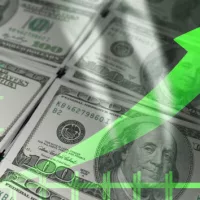
(WASHINGTON) — Economists expect fresh data on Tuesday to show that inflation cooled last month, in large part due to a decline in gasoline prices.
The data, set to be released by the federal government’s Bureau of Labor Statistics, would cheer policymakers and households bedeviled by inflation that stands well above the Federal Reserve’s target rate.
The consumer price index will have increased 3.3% over the year ending in October, forecasters predicted. The results would mark a nearly half-percentage-point decline from the annual increase shown the previous month.
While inflation has fallen significantly from a peak of about 9% last summer, progress in the fight against rapid price increases has stalled in recent months.
Economists attribute the anticipated decline in inflation last month largely to a fall in gas prices as the busy summer travel season gave way to an autumn slowdown.
Over a four-week period beginning at the start of October, gas prices fell nearly 8%, according to AAA data reviewed by ABC News.
Progress shown in the price-hike data, however, is expected to lag for a separate key metric: core inflation, which omits volatile food and energy prices.
Core inflation is expected to have risen 4.1% in October compared to a year ago, matching the rate demonstrated over the previous month.
The latest data is set to arrive roughly two weeks after the Federal Reserve left interest rates unchanged. The central bank left open the possibility of an additional rate hike this year but opted to first assess the economy as previous rate increases take greater hold.
“Inflation has been coming down but it’s still running well above our 2% target,” Fed Chair Jerome Powell said at a Nov. 1 press conference in Washington, D.C. “Given how far we have come, along with the uncertainties and risks we face, the committee is proceeding carefully.”
Once bemoaned as a source of recession worries, the U.S. economy has become a wellspring of good news, with blistering growth, robust hiring and consumers more readily opening their wallets for everything from concert tickets to bar tabs.
The strong performance, however, complicates the fight to dial back inflation, posing a quandary for the Fed.
Since last year, the Fed has raised its benchmark interest rate at the fastest pace in more than two decades, seeking to slash price hikes by slowing the economy and reducing consumer demand. In theory, the economy should eventually falter as it becomes more expensive for businesses and consumers to borrow. But the economy has so far resisted a cooldown.
Gross domestic product data released late last month showed that the U.S. economy expanded at a 4.9% annualized rate over three months ending in September. That breakneck pace more than doubled growth over the previous quarter and reinforced other recent indicators of sturdy performance.
The U.S. economy’s resilience, and consumer spending over the past year amid a decline of inflation, suggest that rapid price increases had resulted from the insufficient supply of goods and the disruption of the Russia-Ukraine war, Mark Zandi, chief economist at Moody’s Analytics, said Sunday on X.
“As these supply shocks fade, so does inflation, without a recession,” Zandi said.
However, a rapid rise in U.S. government bond yields over recent weeks has elevated long-term borrowing costs for consumers seeking mortgage loans, and for corporations pursuing funds to expand their businesses.
Those added borrowing expenses could slow the economy, Powell said at the press conference earlier this month.
“Higher treasury yields are showing through to higher borrowing costs for households and businesses, and those higher costs are going to weigh on economic activity,” Powell said.
Meanwhile, credit card debt climbed to a record high in the third quarter of 2023, surging nearly 5% from the previous quarter and suggesting that some of the economic growth may have been driven by consumer debt, economists previously told ABC News.
The mixed economic picture creates significant uncertainty but the status of the Fed’s inflation fight remains clear, Powell said, noting that the task will require a further slowdown in price increases.
“The process of getting inflation sustainably down to 2% has a long way to go,” Powell said. “We remain strongly committed.”
Copyright © 2023, ABC Audio. All rights reserved.














